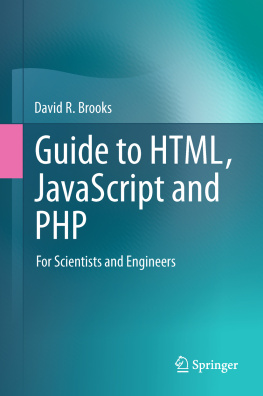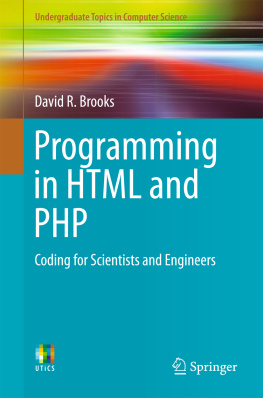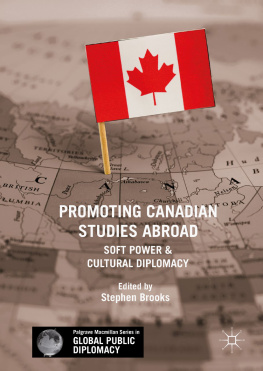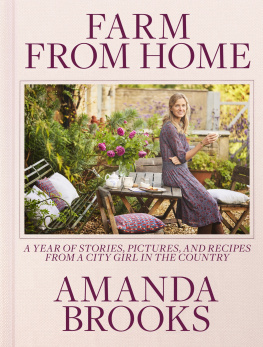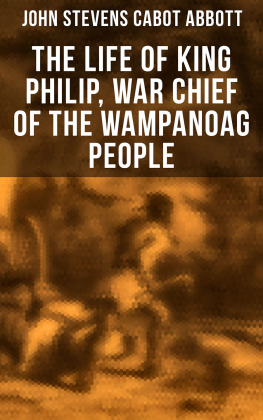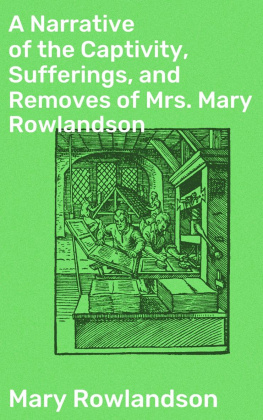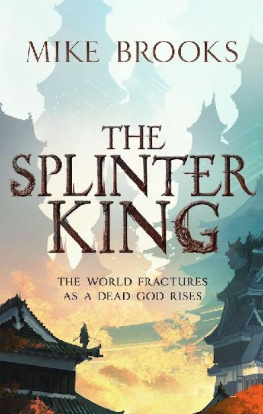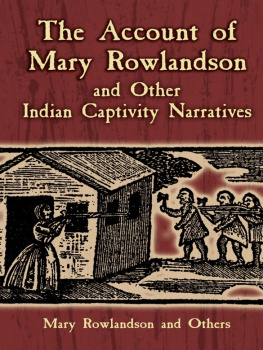OUR BELOVED KIN
THE HENRY ROE CLOUD SERIES ON AMERICAN INDIANS AND MODERNITY
Series Editors: Ned Blackhawk, Professor of History and American Studies, Yale University, and Kate W. Shanley, Native American Studies, University of Montana
Series Mission Statement
Named in honor of the pioneering Winnebago educational reformer and first known American Indian graduate of Yale College, Henry Roe Cloud (Class of 1910), this series showcases emergent and leading scholarship in the field of American Indian Studies. The series draws upon multiple disciplinary perspectives and organizes them around the place of Native Americans within the development of American and European modernity, emphasizing the shared, relational ties between indigenous and Euro-American societies. It seeks to broaden current historic, literary, and cultural approaches to American Studies by foregrounding the fraught but generative sites of inquiry provided by the study of indigenous communities.
OUR BELOVED KIN
A New History of King Philips War
Lisa Brooks
Yale
UNIVERSITY PRESS
New Haven & London
The publication of this book was supported (in part) by Amherst College. Published with assistance from the foundation established in memory of Philip Hamilton McMillan of the Class of 1894, Yale College.
Copyright 2018 by Lisa Brooks.
All rights reserved.
This book may not be reproduced, in whole or in part, including illustrations, in any form (beyond that copying permitted by Sections 107 and 108 of the U.S. Copyright Law and except by reviewers for the public press), without written permission from the publishers.
Yale University Press books may be purchased in quantity for educational, business, or promotional use. For information, please e-mail (U.K. office).
Set in Electra type by Newgen North America.
Printed in the United States of America.
Library of Congress Control Number: 2017947666
ISBN 978-0-300-19673-3 (hardcover : alk. paper)
A catalogue record for this book is available from the British Library.
This paper meets the requirements of ANSI/NISO Z39.48-1992 (Permanence of Paper).
10 9 8 7 6 5 4 3 2 1
For Rick, who has always understood
The first step in liquidating a people... is to erase its memory. Destroy its books, its culture, its history. Then have somebody write new books, manufacture a new culture, invent a new history. Before long the nation will begin to forget what it is and what it was. The world around it will forget even faster.
Milan Kundera, The Book of Laughter and Forgetting (1978)
pili kisos, the new moon
pildowi jmowgan, a new history
Joseph Laurent, New Familiar Abenaki and English Dialogues (1884)
CONTENTS
MAPS
A NOTE ON THE MAPS
The maps included in each chapter and on the website are designed as interactive guides. Readers are encouraged to refer to them as they read. Full-scale color versions and additional maps can be viewed at http://ourbelovedkin.com. These maps do not represent all Native territories and place names or all colonial towns, but highlight places mentioned in the book. Please note that these maps are not designed to delineate fixed territories, but to locate the reader in and convey the authors conceptualizations of Native space. Concentric circles convey a sense of homelands spreading outwards from a center, rather than indicating a single point on a map.
The maps were created using ArcGIS 10.3, courtesy of Amherst College. Lisa Brooks and Andy Anderson, lead GIS Specialist, led a team that included Aida Orozco, Micayla Tatum, Cassandra Hradil, Lauren Tuiskula, Heru Craig, Maggie King, Allyson LaForge, and Griffin Harris. Special thanks to the Andrew W. Mellon Foundation and the Gregory S. Call Academic Interns Program for supporting a research tutorial and funding for research assistants, and to the Whiting Foundation for supporting the development and piloting of the website.
ACKNOWLEDGMENTS
This book did not start out as a project on King Philips War but emerged gradually from the intertwining of several different inquiries. Many conversations and collaborations along the way contributed to my understanding. All mistakes and misunderstandings herein are my own.
Ktsi wliwni, great thanks, to the writers, educators, and historians who read the manuscript, in whole or in part, and offered incisive critique and encouragement, including Cheryl Savageau, Cassandra Brooks, Gordon Russell, Susan Power, J. Khaulani Kauanui, Melissa Tantaquidgeon Zobel, Elizabeth James Perry, Jonathan Perry, Judy Dow, Cheryll Toney Holley, Pam Ellis, Linda Coombs, Darius Coombs, Jill Lepore, Barry OConnell, Colin Calloway, Neal Salisbury, Kevin Sweeney, and Tad Baker.
Wliwni to the many additional people who, through ongoing conversation, contributed vital insights to this project. In the Nipmuc country and in Cambridge/Boston, thanks to Bruce Curliss, Keely Curliss, Mary Anne Hendricks, Kristen Wyman, Larry Mann, Patrik Johansson, Shelly Lowe, Dennis Norman, Malinda Maynor-Lowery, Werner Sollors, Steve Biel, Jeanne Follansbee, Andy Romig, Jim Engell, Leah Price, Mark Schiefsky, and Sally Livingston. Special thanks to the students who contributed to translation and research, including Wampanoag scholar Tiffany Smalley, Rebecca Cohen, and Vanessa Dube, and to everyone who organized and participated in From the Gospel to Sovereignty: Commemorating 350 Years of the Harvard Indian College in April 2005.
In the Wampanoag and Narragansett country, kutaputash to Tobias Vanderhoop, Judith Sanford-Harris, Bettina Washington, Jessie Little Doe Baird, Patricia Perry, Leah Hopkins, Dawn and Cassius Spears, Berta Welch, Ramona Peters, Jim Peters, Tall Oak Weeden, and Donna Mitchell. At Mohegan and in Connecticut, taputni to Lynn Malerba, Stephanie Fielding, Rachel Sayet, Trudie Lamb Richmond, and Ruth Garby Torres. In Haudenosaunee territory, Nia:wen to Kahntineta Horn, Kahente Horn-Miller, and Alyssa Mt. Pleasant. Thanks also to Mary Beth Norton at Cornell for supporting this project early on.
In Wabanaki, wliwni to Roger Paul, Carol Dana, Gabe Paul, James Francis, Donald Soctomah, Natalie Dana, Kyle Lolar, Natalie Michelle, John Banks, Chip Loring, Mark Ranco, Maria Girouard, Marge Bruchac, Louise Lampman-Larivee, Alex Larivee, Lester Lampman, and everyone at Missisquoi. Rick Pouliot and Lillie Rose Brooks were my constant companions on this journey, and I am grateful to them for sustaining me. Thanks also to my mother, Christine Brooks, for offering vital support while I wrote. A special thanks to Michael Johnson, Sabine Klein and all my colleagues and students at the University of Maine at Farmington, for collaboration, conversation, and research support.
In the Connecticut River Valley, thanks to Barbara Moseley, Ed Lonergan, and to all my generous, engaged colleagues in the American Studies and English departments, and in the Five College Native American and Indigenous Studies community. Special thanks to our mapping and website research team, including Dr. Andy Anderson, Aida Orozco, Micayla Tatum, Cassandra Hradil, Lauren Tuiskula, Tim Gaura, Heru Craig, Maggie King, Allyson LaForge, Griffin Harris, and Lehua Matsumoto.
Thanks to colleagues at University of Texas at Austin, including Jim Cox and Polly Strong, for good questions, and to those who hosted and participated in discussions at UConn, Rutgers, Yale, Concordia, UCLA, University of Illinois, UC Berkeley, Plimoth Plantation, Historic Deerfield, Primary Source, UMass NEH Summer Institute, and NAISA.
Yale University Press carried this manuscript through to fruition, and I am grateful to Kate Shanley, Laura Davulis, Chris Rogers, Adina Berk, Eva Skewes, and all those working behind the scenes through publication, as well as to David Pritchard, an unparalleled copy editor. I also want to thank Writers House, especially Michele Rubin, for seeing the vision, and Geri Thoma, for key advice.
Next page



